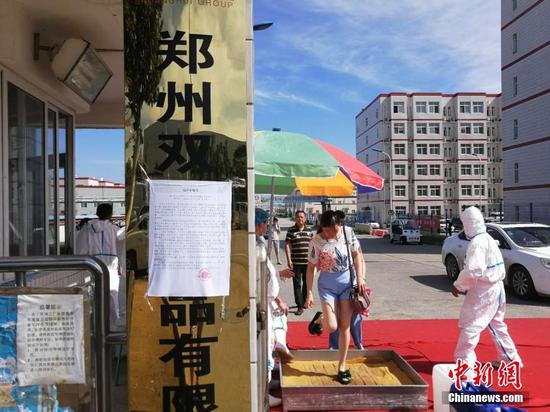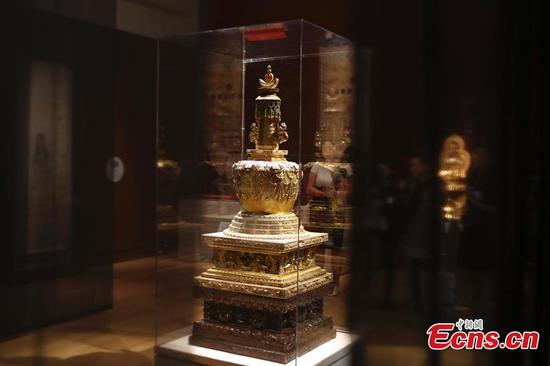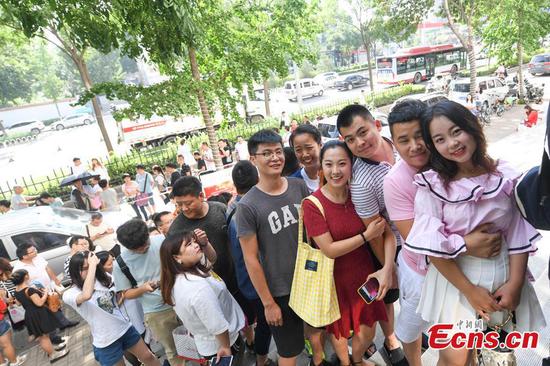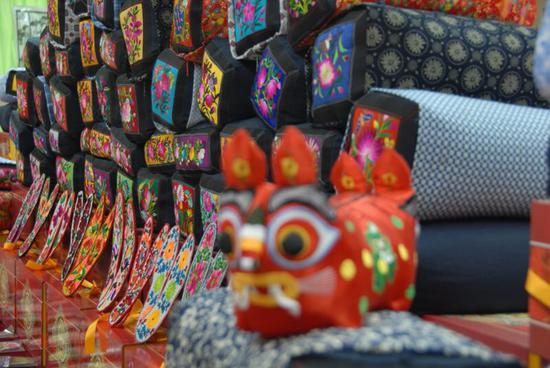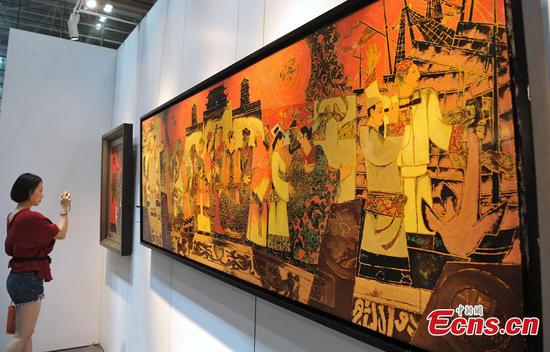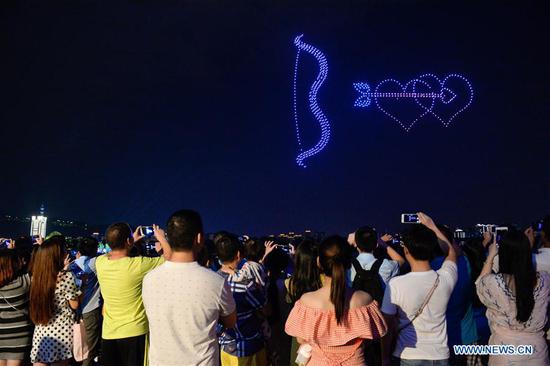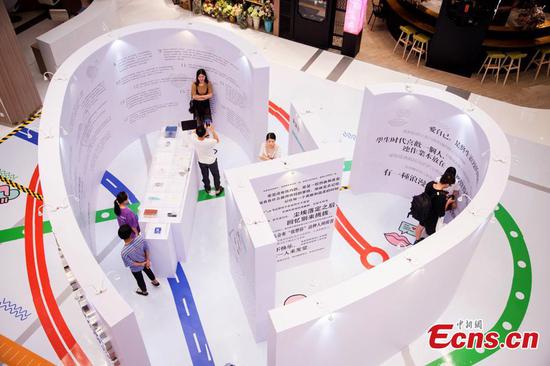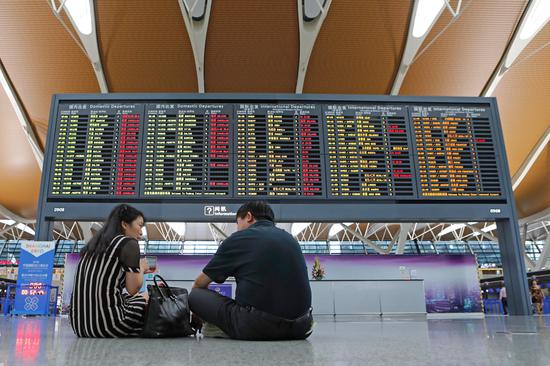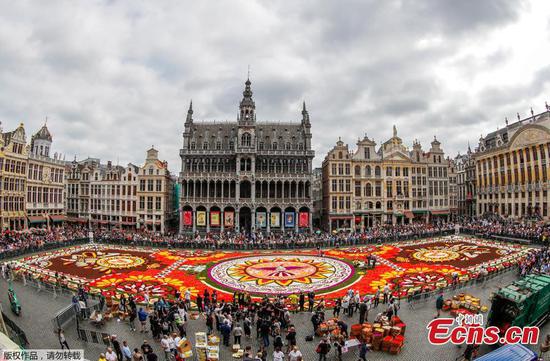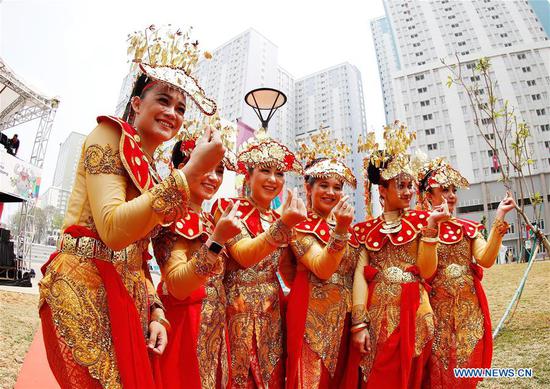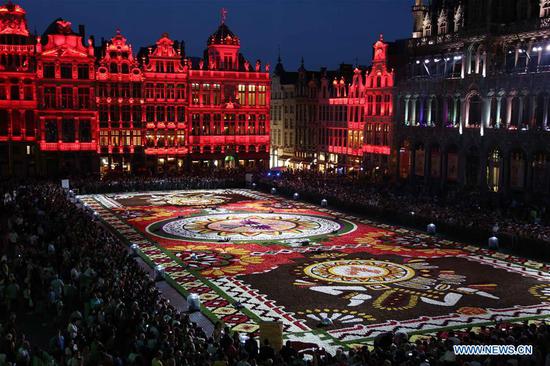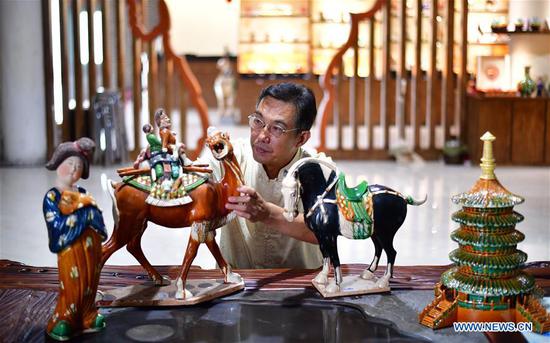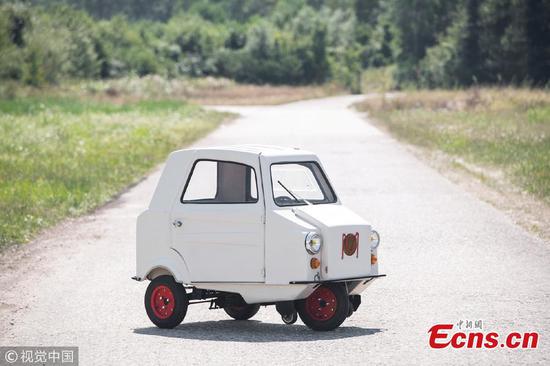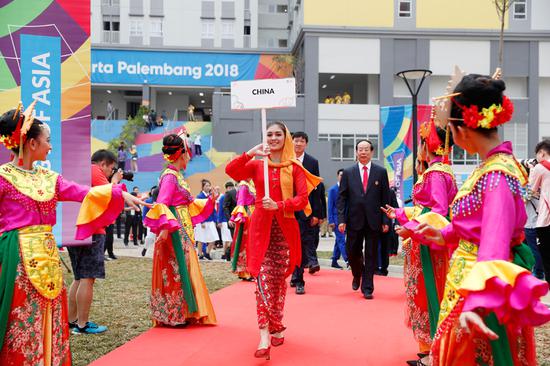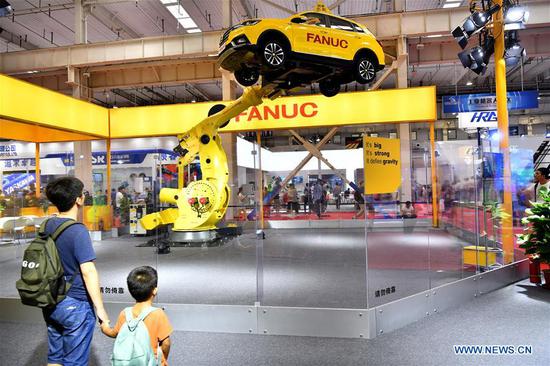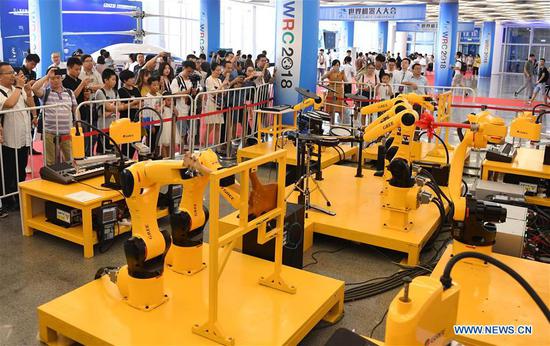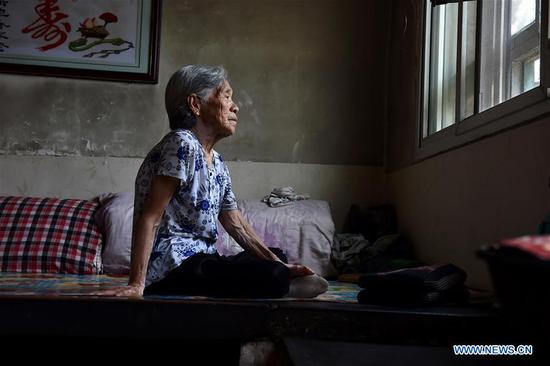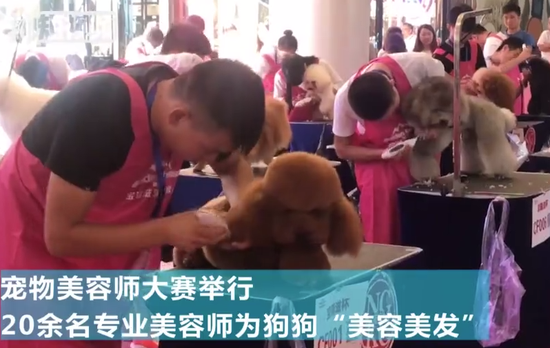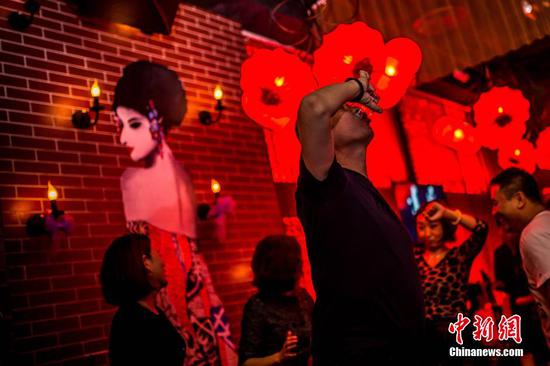
(File photo shows people in a bar of Qingdao./CNSPHOTO)
A new report driven by what people in eight Chinese cities buy on their phones after the night falls reveals just how different the nightlife is among Chinese urban dwellers.
According to the data gathered from Alibaba Group including eight platforms payments service, Alipay, food delivery unit Ele.me, as well as the video-streaming site, Youku, suggests that Chinese people go to bed at 4 am on average.
Additionally, it also shows Beijingers order Starbucks after 6 pm the most, go to bed late and rise the earliest. Residents in Shanghai purchase movie tickets and pay the most hospital visits at midnight, and east China’s Nanjing City has the most bookstore visits.
As for the night food orders, they start coming in at 9 pm with orders for fried chicken and barbecued sticks of meat ranking as people’s favorites. Down southwest in Chengdu, people spend the most on dinner, gathering around tables for hotpot. Citizens in Hangzhou City in eastern China prefer drinks over food, with its highest sales of alcohol at night.
Even when night falls, the taxi wheels keep going as the average fare of rides booked via ride-hailing apps at night is 28 yuan (about 4 US dollars). “Night owls” in the dynamic city of Shenzhen in southern China hold the longest night rush distance and fill up the free bus at 11 pm, while “early birds” in Beijing enter the taxi rush hour at 5 am.
From 11 pm to 4 am every night, 7.1 percent of small businesses choose not to put up the shutters in central China’s Wuhan City. Merchants using the QR code as a trading manner apply for a small loan from online banks most frequently at 1 am.
Audience rating on Youku generally peaks after 10 pm with subscribers logging on to watch popular Chinese TV dramas. Shanghai residents love the cinema, racking up the most movie ticket sales in China, with 18-25-year-olds fall sleep the latest.
Also, Shanghai has the highest online condom sales and offline desserts sales at night. Hangzhou residents are most concerned about housing prices, while Nanjing people love chickens rather than ducks, although ducks are local specialties. Northwestern Xi’an people’s love for Starbucks is second to Beijing.
Mobile payment has been an integrated part of people’s lives in China, as consumers can place a food order, shop online and also pay utility bills on their smartphone screens – no matter what time it is. However, the active nightlife also reflects the pressure of urban life.









